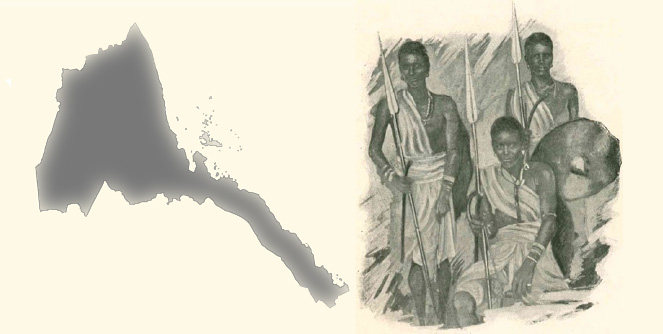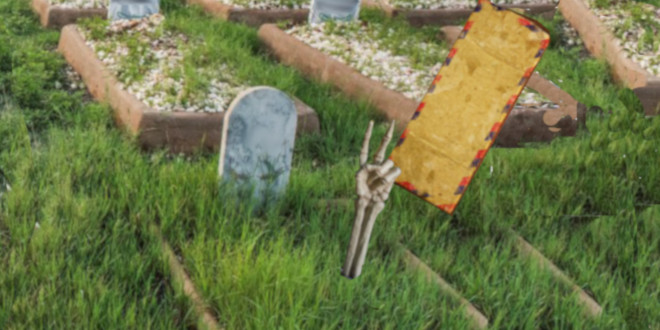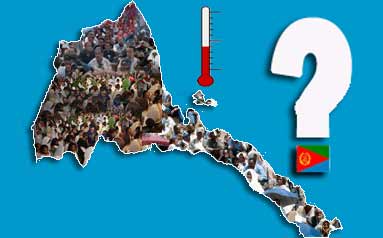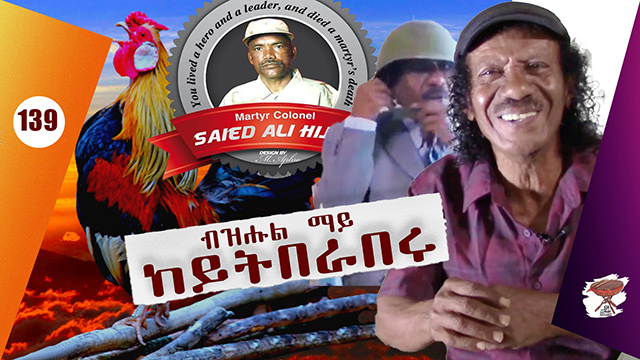Eritrea’s Mendelai (መንደላይ), Manhood & Cobra

Author and singer Melake Abraham’s song entitled Mendelay, with close to 3 million views on YouTube, popularized the word Mendelay. Mendelai ending in “ai” will be used throughout this article for reasons the reader will understand. Based on the lyrics, and an interview of the video producer Daniel Teame, Mendelai was used in its Tigrigna meaning of Cobra presenting the Eritrean soldier as mysterious creature as the dangerous snake, neck straight waiting ready to defend whoever comes to attack Eritrea (1). Driven by the war in northern Ethiopia in Tigray, the song was apparently prepared in haste in a tit-for-tat response to another controversial song released before it, calling for Tigray combatants to go and occupy the capital city of Eritrea. Be that as it may, Mendelai became, not only popular, but also a symbol of silent power. There, however, is more to Mendelai than the only version being popularized by the song.
Eritrea is endowed with diverse traditions, cultures and history expressed in many languages, and with rich words (vocabularies) and expressions with different (multiple) meanings within the same language. Mendelai is such a word!
When the Italians colonized Eritrea, they monopolized everything, including the people, who became Italian subjects. They were studied, described from head to toe. They recounted their oral stories, traditions and history, to the delight of the curious Italians, who were registering everything said with pen and paper. The people posed for photography and paintings. Their activities became the curiosities of what the people considered the weirdo “unoccupied white”.
Among these curious Italians was the daring indefatigable lady, Rosalia Pianavia Vivaldi, a wife of an Italian official sent to Eritrea. She roamed her motherland’s new acquisition, camera at hand, from the coast of the red sea inland to the center, the west as well as south until Mekelle in Tigray (2). Her curiosity was insatiably measureless, her affection towards her blood and half-blood limitless, her disparaging expressions on the indigenous people boundless. Her usage of “little devils” referring to the little children following her was a curious mark of affection, if at all it was intended to be, as she recognized their intelligence, quick grasp and learning capacity. Nevertheless, she is one of those few, who documented so many activities and traditions in Eritrea to our delight and the chance of digging them out to the curiosity of the reader.
One day while in Godaif, then a village south of Asmara, Rosalia came upon the last of the Mohicans, a group of Mendelai (መንደላይ, sing. መንደሎት pl.). Not a group of cobra snakes ready to strike as per the well-known meaning of the word in Tigrigna, but upon a group of seductive youngsters. Her curiosity celebrated the Mendelai tradition accompanied by a photograph, a tradition long forgotten now. Mendelai is a name that designates youth of a unique age group, who, feeling the summit of virility, arrive at the threshold of adulthood, ready to embark for independence. They let their readiness be known through certain defined activities and external appearance. They make themselves awfully handsome, dressed in a new white cloth wrapped around the waist with a flap thrown over the shoulders. They let the hair grow, but shave up their nape, pierce their right ear inserting a silver ring, decorate their forearms with rows of bracelets and glass-beads, carry shields and sharpened spears and travel holding a green twig (2).
Happy and flamboyant, grouped in two or three, they go far to every village their relatives and acquaintances live, congratulating, celebrating and announcing their entry to manhood. As the tradition dictates, the surprised happy relatives and friends give them whatever gift they can. One a calf, the other a lamb, another a goat, even horses and mules, whatever everyone can. Rosalia didn’t mention what she gave, if at all she did. The equally curious, but much more powerful administrator of Eritrea Ferdinando Martini writes in one of his books that he was one day at Addi-Baro where he met eleven Mendelai, who were visiting relatives announcing their delight of arriving at the fateful age (3). Seeing the generosity of everybody, providing the youngsters different gifts they can, he decided to give each one of them one Thaler.
Mendelai, passing this stage, they would have the right to stand in the Baito (ባይቶ), the open-air “national assembly” of the village. They would be able to become a Ghebar (ገባር), one who shares the land, works it, and pay tribute (ግብሪ), and be ready to be called to defend their area and patria. They will have the right for ceremony of remembrance (ተዝካር) sometime following burial. The Mendelai tradition and appellation referring to this age group was practiced in the wider region of Tigrigna and Tigrayit speaking people. Enno Littmann, who documented the tradition of the Tigrayit speakers, mentions here and there in his books the activities of Mendelai, as well as its meanings in his Tigrayit-Dutsch-English dictionary (4, 5). In one of the books, he says if a Mendelai (not founding his own family) dies, the stones covering his tomb will be assorted or motley. Another Italian military man, A.M. Tancredi, mentions in one of his publications that Mendelai is used more in Hamasien region, while in certain areas of Akele-Guzai a different term, ga-asi (ጋዕሲ) is used for the same practice (6). The modern Tigrigna dictionary by Tek’e Tesfay, presents the term ብዓል-ጋዕሲ as being equivalent to መንደላይ, and መግዓሲ as being the gift given to ብዓል ጋዕሲ (7). This same dictionary also talks very briefly of the two meanings of Mendelai, cobra and youth with shaved nape ready for adulthood and collecting gifts from relatives.
In certain parts of the Mendelai song video mentioned above, an Eritrean military chief is seen calling the young soldier ‘come Mendelai’ allowing us to speculate a reference to the age of the soldier and playing with the double meaning of the word (1). However, based on the remaining lyrics, the use of the word Mendelai in the song is solely as meaning Cobra. The brave young Eritrean conscript soldiers are indeed Mendelai, defending the country. They unfortunately didn’t have the chance of travelling around to collecting their gifts. Not only the tradition was lost, but also, we find ourselves in a chaotic post colonization period unable to extricate ourselves from its postdrome, and to regain the good side of our traditions and culture.
Though it is the role of the linguist, anthropologist, sociologist to decipher what the original meaning of Mendelai was and the possible reasons it was given to that age group of men and/or to the snake, we will attempt to mention some possible avenues. Who gave and who took the name? Mendelai the man to be or cobra the snake? Or are they unrelated to each other? Both the
Mendelai (youth) and Mendelai (Cobra) are handsome, slender and alert, one endowed with poisonous fangs, the other holding a sharpened spear. Is the word describing them and their resolute beauty? Searching the dictionaries for leanings revealed curious possible clues from the Amharic language. Based on the Amharic dictionary compiled by Thomas Leiper Kane, derivatives revolving around the words like ሞነደለ meaning to wash thoroughly, embellish, to be attractive, pretty, handsome; ሞንዳሌ which means handsome, attractive; መንደላት meaning strong fine young man, strapping youth; መንደልት meaning means of piercing the ears; መንደልቶ meaning earrings, nose ring, broad ring worn in the ear curiously; all appear to point to the practice of the Mendelai (8).
Mendelai, its possible linguistic origin, its practice, its wide usages show us how tradition, language and culture are interrelated and connect people of different locations and experiences. Lately, Eritreans are questioning themselves on many aspects of their being. We are listening to interviews after interviews with every daring invitee giving his opinion. This is a good thing. However, sometimes we hear people sticking to a narrow information they got on one thing. A word they know meaning something is presented as meaning categorically that thing and nothing else. Language is plastic. It is better to dig why something was so named rather than going to the easy solution, i.e., to the uproar, and how can it be this! The uproar on everything is keeping us insulated in the inhibited state. We need to come out!
References
1 – Interview of Daniel Teame https://youtu.be/jtaB56g0S0Y
2 – Tre anni in Eritrea, Rosalia Pianavia Vivaldi, 1901. The photograph shown on top is from this book and by the author.
3 – Il Diario Eritreo, Ferdinando Martini. Vol II. 1947
geographica Italiana. Tancredi AM. 1907.
4 – Publications of the Princeton expedition to Abyssinia. Enno Littmann 1910, 1913.
5 – Worterbuch der tigre-sprache. Enno Littmann und Maria Hoefner, 1962.
6 – Una cucina barbara: Come mangiano gli abissini d’Eritrea. In Bolletino della societa
7 – ዘመናዊ መዝገበ ቓላት ትግርኛ ተክአ ተስፋይ 1999.
8 – Amharic-English dictionary. Volume I. Thomas Leiper Kane. 1990




Awate Forum